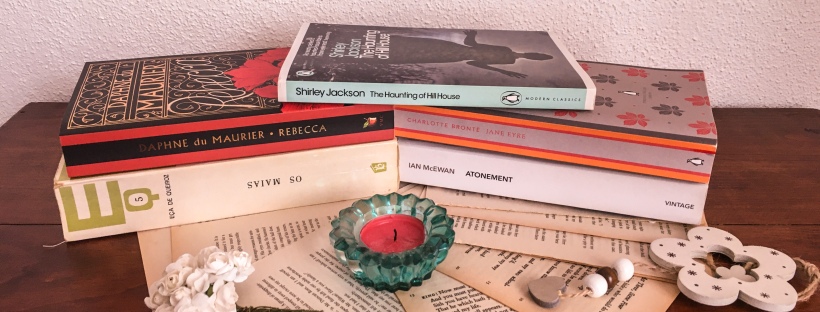The characters and the plot are more often than not the most memorable components of a book. There are sometimes, however, other elements that stand out as well, even if not as much as the other two. Some novels feature houses that serve not only as a mere setting for the development of the plot, but that also offer something extra to the story, like aiding in the creation of a specific ambiance, providing clues for what is to come, or some of its elements being essential for the actions of the characters.
There are five books that immediately come to mind when thinking about ones that comprise houses that play a significant part in the story.
The unnamed narrator of Rebecca by Daphne du Maurier recalls throughout the book what happened after she married Maxim de Winter, whom she met in Monte Carlo. She had always been insecure, but that trait of her personality only got worse when she moved to Manderley, Maxim’s family home. She kept diminishing herself in comparison with his deceased first wife – Rebecca. Manderley plays an important part in this atmospheric and enthralling story. Not only does the novel start with a mention of a dream about the narrator returning to Manderley after the events about to be revealed, but the house also seems to be perceived as a representation of a picture-perfect life that may or may not be true.
Continue reading







